Is SEO Dead? Spoiler Alert: It’s Highly Relevant in 2025
Sep 26, 2024
Written by Casey Bjorkdahl

Casey Bjorkdahl is one of the pioneering thought leaders in the SEO community. In 2010, Casey co-founded Vazoola after working for a Digital Marketing Agency for five years in New York City. Vazoola is now one of the fastest growing and most widely recognized SEO marketing firms in the country.
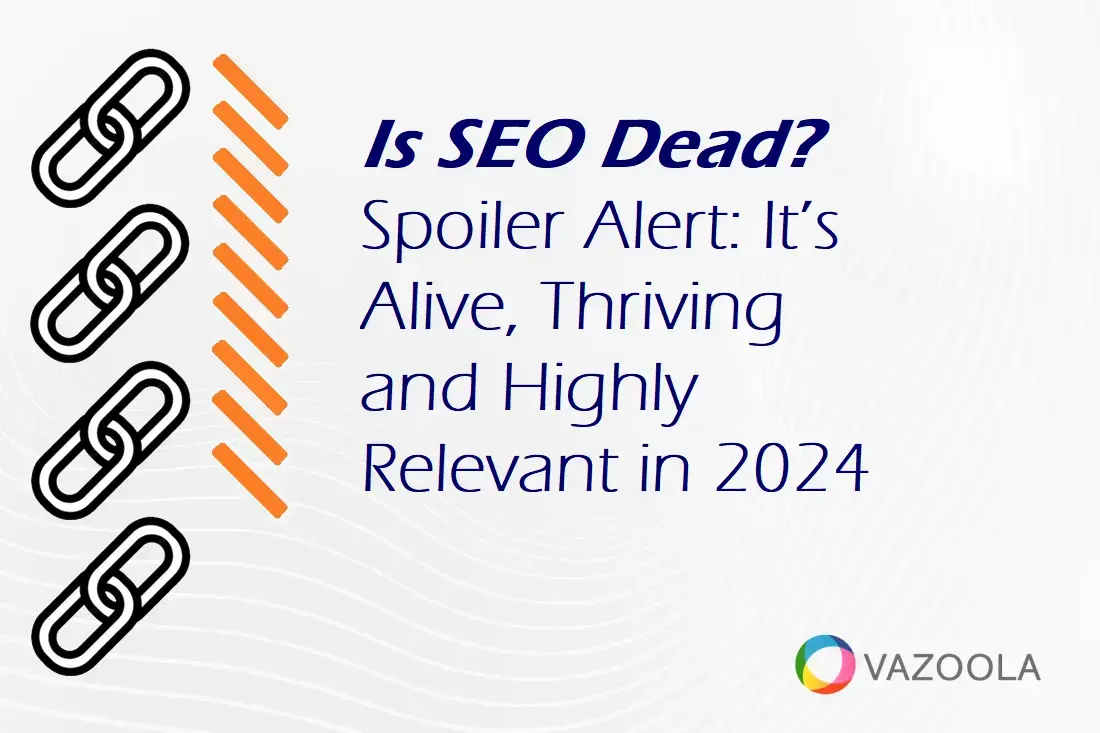
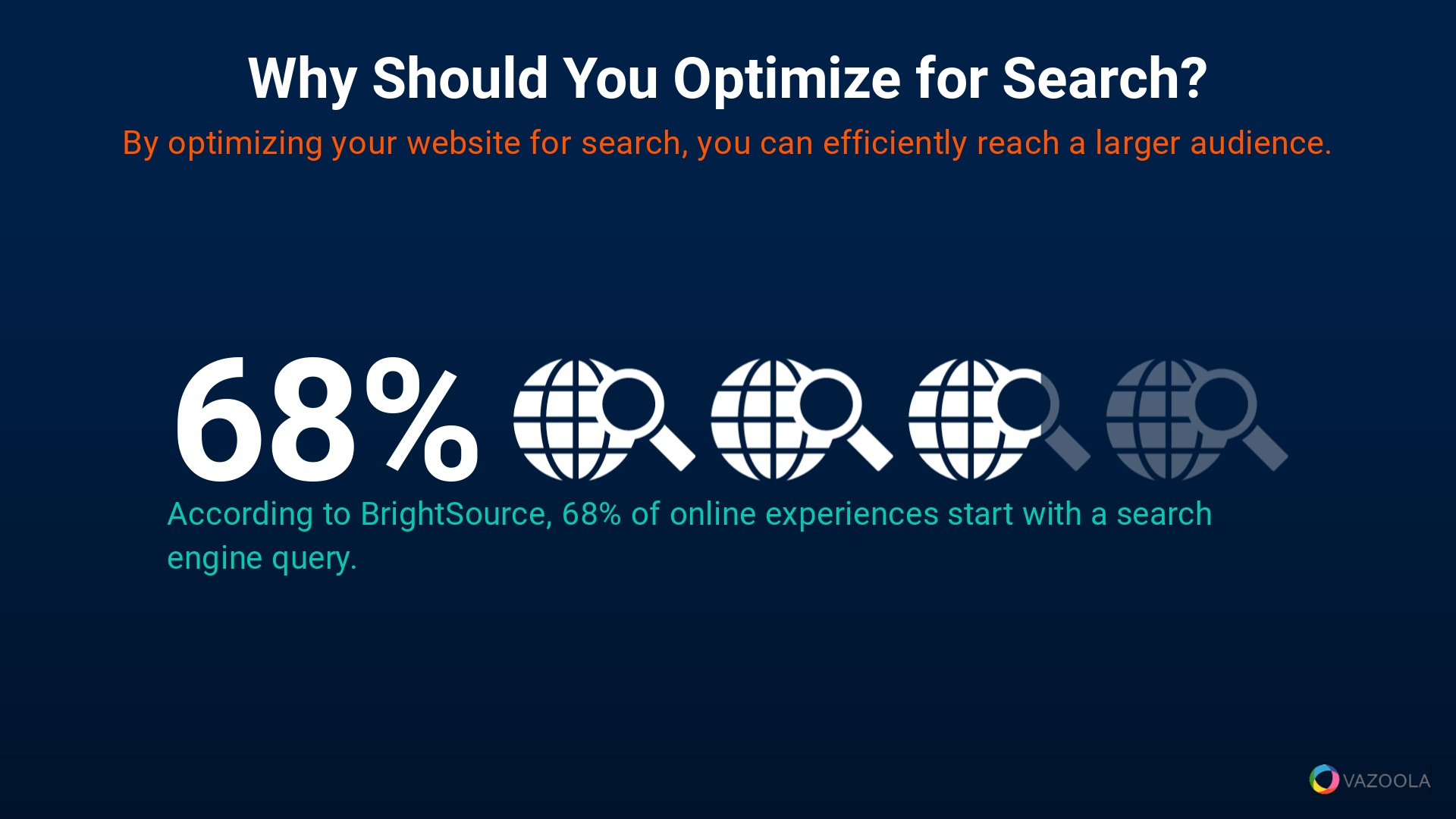
Is SEO dead?
Do you know why your business needs search engine optimization? How can brands successfully traverse the cat and mouse game that is SEO?
As an SEO agency, we’re often asked this question. Is SEO dead? We’ve uncovered compelling data to answer the question.
After all, according to BrightSource research, 68% of online experiences start with a search engine.
Meanwhile, less than 1% of Google searchers in a Backlinko study clicked on results from the second page of results. What does that mean? The data reinforces the utmost importance of SEO strategies. Audiences won’t find your content just because you publish it.
SEO now transcends visibility. For success, you’ve got to remain relevant in a swiftly evolving digital landscape.

From the rise of voice search to AI-driven algorithms, the way we approach search engine rankings continuously adapts.
Our team's proactive strategies make sure businesses both keep up but stay ahead of SEO as it remains a pivotal element of digital success in 2024.
SEO Benefits for Business: Key Takeaways
-
SEO is far from dead. Despite any ongoing debate, it remains an important element of digital marketing. SEO significantly impacts business visibility and success.
-
SEO enhances users’ experiences. Modern SEO tactics extend beyond keyword optimization, and they improve a website’s overall user experience.
-
SEO is important for local businesses. It plays a key role in targeting specific market segments. Local SEO helps businesses appear in relevant local searches, essential for attracting a customer base within a community.
-
SEO is one of the most cost-effective marketing strategies. It offers a higher return on investment compared to paid advertising. SEO also builds organic search credibility over time – more sustainable and cost efficient than continuous paid campaigns.
-
Google's ongoing algorithmic updates are not intended to phase out SEO but to refine it. The recurring changes encourage adherence to SEO best practices that enhance user experiences. Google updates also ensure SEO strategies evolve in line with the highest standards of web content and usability.
Table of Contents
If You're Still Asking Why You Need SEO…?
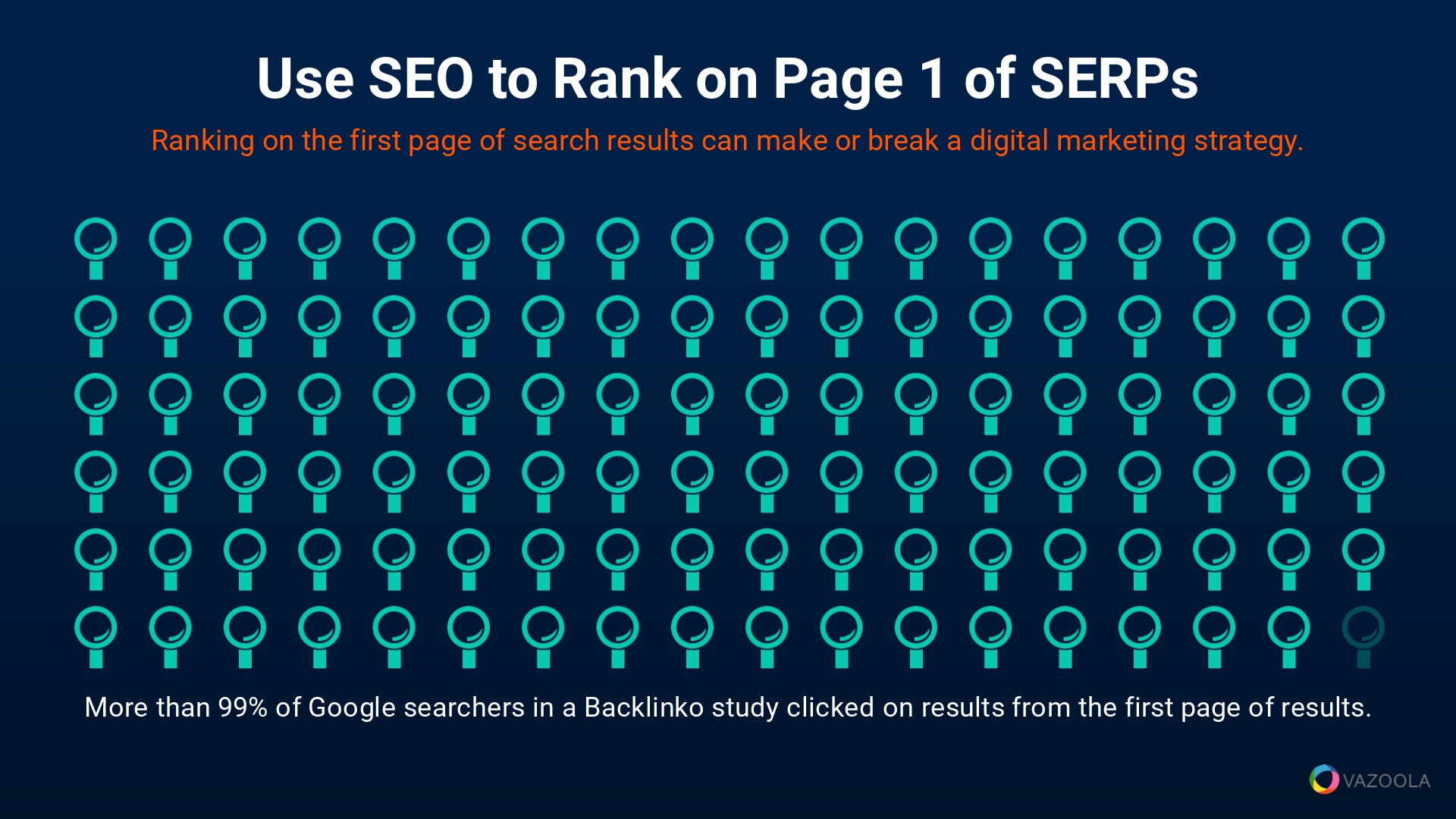
What is SEO, and why is it important?
Some new website owners and managers might be wondering why do I need SEO. So, let’s break it down.
SEO – search engine optimization – is more than just a buzzword. It’s an essential digital marketing component that determines how visible your website is to potential customers.
At its core, SEO enhances your website’s visibility in search engine results.
Still, don’t be mistaken. SEO isn't just about appearing at the top of Google’s search results. Instead, it's also about connecting your services or products with the people who are actively searching for them.
In the digital environment – where the majority of shopping and information gathering starts with a search engine query – being visible is tantamount to remaining a viable business.
SEO also plays a pivotal role in user experience. By optimizing your site structure, content relevancy, and the technical performance of your website, you make sure it’s not only found but also appreciated by users.
That same optimization leads to higher engagement, longer site visits, and ultimately, more conversions.
In the modern digital marketing ecosystem, SEO acts as the backbone that supports other strategies – including content marketing, social media, and paid advertising – by boosting overall effectiveness and efficiency.
Here at Vazoola, we understand that mastering SEO can seem a daunting task, but the SEO impact on business and online success is undeniable. SEO drives organic traffic to your site, it builds credibility, and – if done right – delivers a great ROI.
In essence, if you’re not prioritizing SEO, you’re not just behind the curve—you’re invisible to potential customers.
Importance of SEO in Digital Marketing
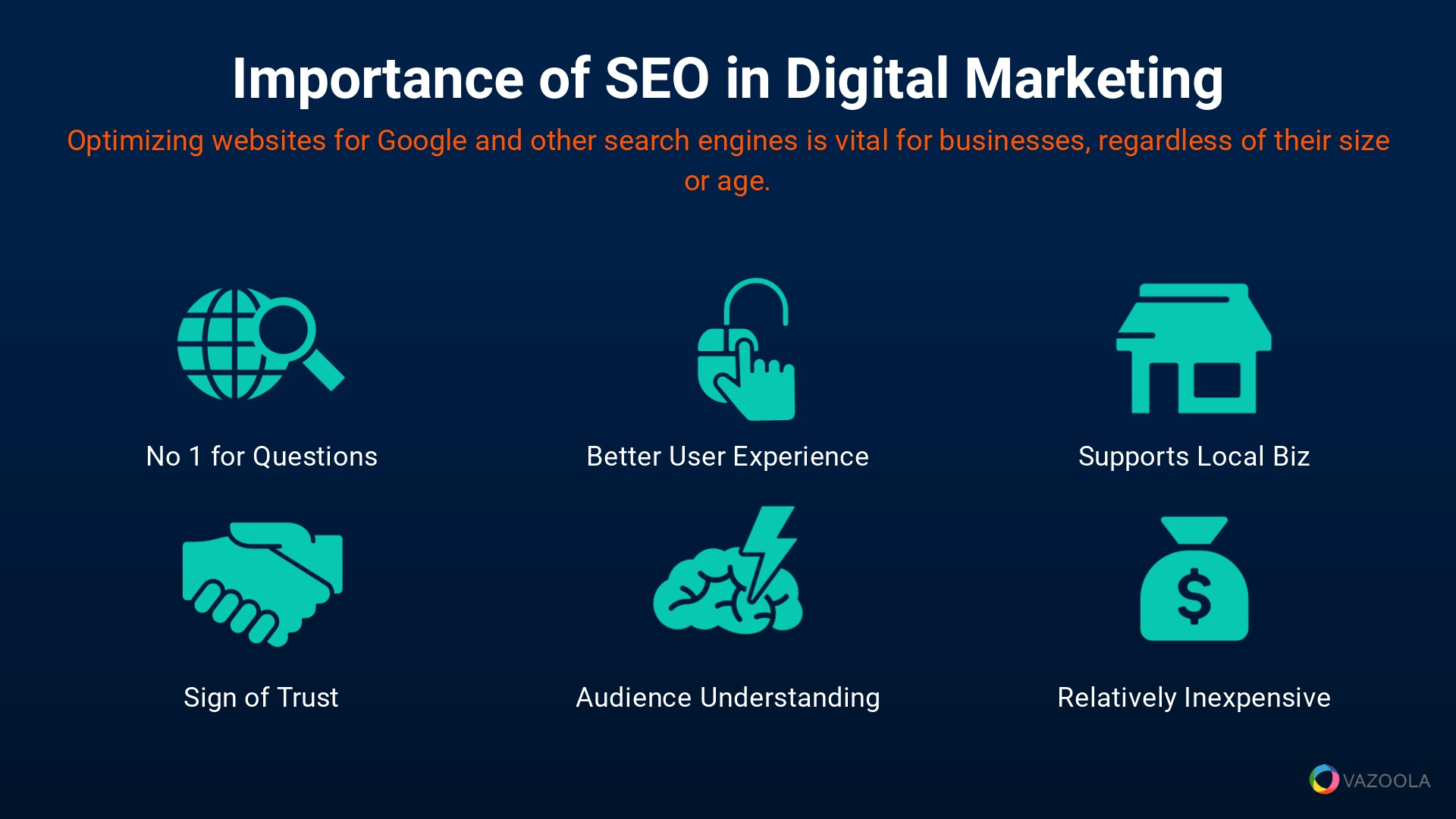
It’s critical to understand the importance of SEO in business – especially in a world dominated by digital interactions. Optimizing websites for Google and other search engines is vital for businesses, regardless of their size or age.
What can SEO do for your business? What are some key reasons why SEO still matters? How will it continue to be relevant for the foreseeable future? Consider the following reasons why SEO is important for business in 2024.
Search is still the first place people go for questions, even in the age of AI.
Despite the advancements in AI and social media, search engines remain the primary method for information discovery online. An overwhelming number of online experiences begin with a search engine. It’s therefore essential for businesses to be visible where most customer journeys start.
Good SEO provides better user experiences.
SEO isn't just about optimizing for search engines. It's also about elevating the user experience. By focusing on relevant content, faster page speeds, and mobile-friendly design, SEO practices improve the overall usability of your site, which can lead to better UX, engagement, and – ultimately – conversions.
SEO supports local businesses.
SEO is a lifeline for local businesses. It helps them appear in localized search results – key considering almost half of Google searches are seeking local information, according to common claims attributed to Google. By optimizing for local SEO, businesses can connect with community members and drive local traffic. Learn more about our local SEO solutions here.
Search results are signs of trust and credibility.
When a site appears high on SERPs, it tells users that it’s a credible source. High-ranking positions often are associated with authority and trustworthiness – qualities that can significantly increase user confidence in your brand.
Pro Tips:
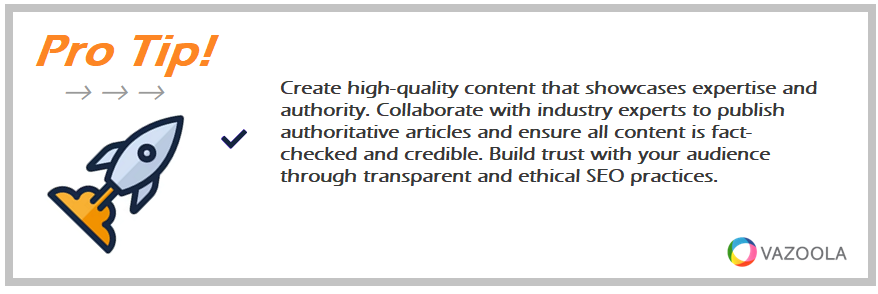
Create high-quality content that showcases expertise and authority. Collaborate with industry experts to publish authoritative articles and ensure all content is fact-checked and credible. Build trust with your audience through transparent and ethical SEO practices.
Keyword research helps you understand your audience.
Keyword research involves more than finding terms with which to optimize. Effective keyword research is about understanding what your potential customers are searching for. Insight into their needs and questions can guide your content strategy so you’re sure to meet your audience's demands.
Organic search is relatively inexpensive.
Compared to search engine marketing and paid advertising, SEO is a cost-effective strategy. While it may take longer to see results, the long-term SEO benefit and lower cost can yield a substantial ROI. When possible, businesses should incorporate both organic and paid strategies for a comprehensive approach to digital marketing.
Benefits of Search Engine Optimization
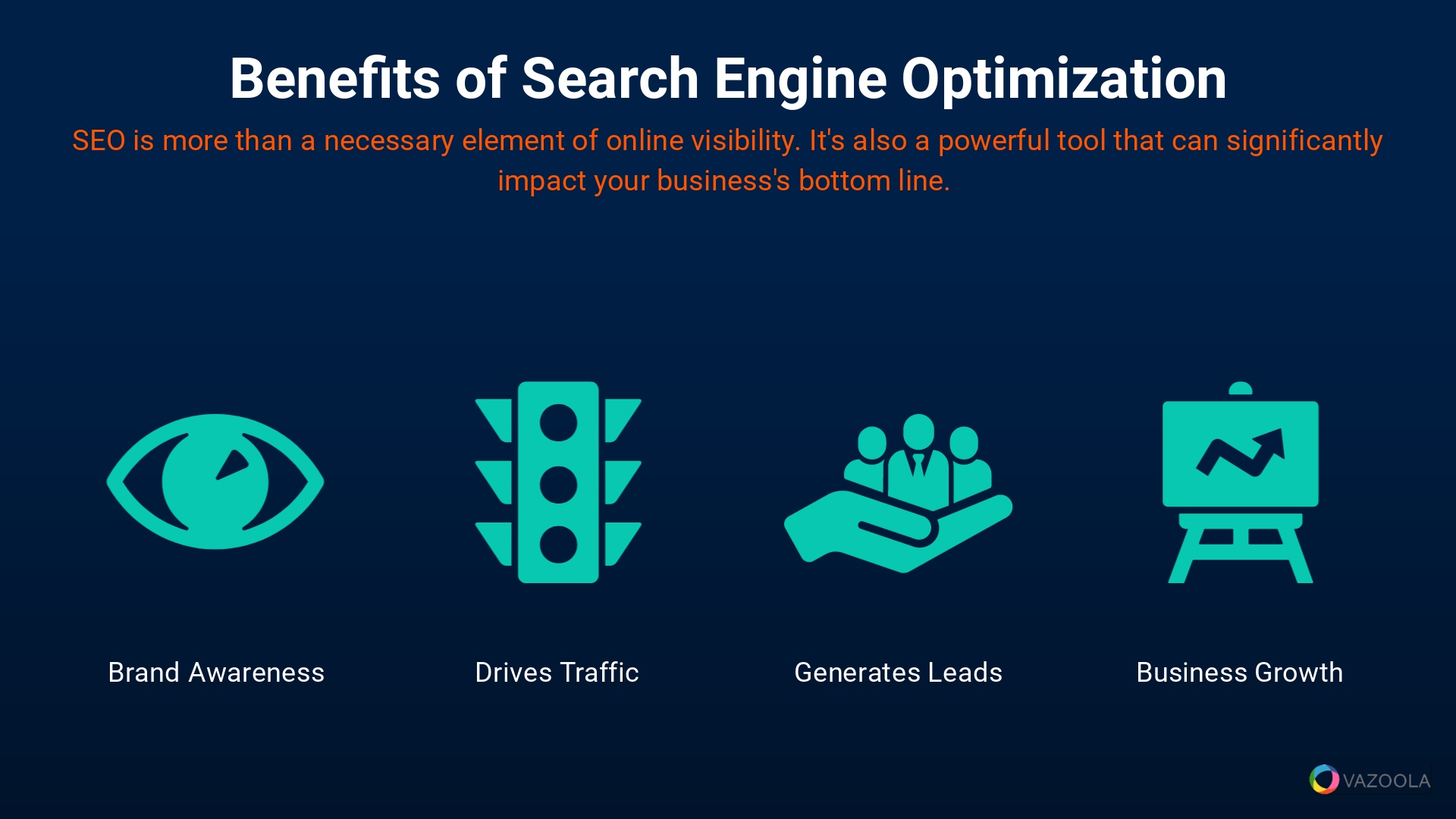
What are the benefits of SEO for business?
SEO is more than a necessary element of online visibility. It's also a powerful tool that can significantly impact your business's bottom line.
With the right strategies, SEO can boost brand awareness, drive website traffic, generate leads, and ultimately foster business growth.
How do these benefits translate into tangible outcomes for your business?. Keep reading as we take a deep dive into SEO advantages
Brand Awareness
SEO helps build brand awareness by increasing your organization’s visibility on search engines.
When your website appears on the first page of search engine results, it increases the likelihood that potential customers will come into contact with your brand when searching for relevant topics or solutions.
Consistent search visibility helps your audience believe in your brand since users generally trust search engines results as relevant and authoritative.
For example, a consistent top position in search results can make your brand synonymous with certain products or services, embedding your business in consumer perception.
Drives Traffic
At its core, SEO’s primary objective is to increase traffic to your website.
By optimizing your site with targeted keywords related to your products or services, you improve your chances of appearing in the search results when potential customers are looking for what you offer.
Higher search rankings typically translate to more site visits, as a variety of studies show the first page of Google captures a large majority of search traffic clicks.
It just goes to show the significant impact that SEO can have on increasing your digital footprint and driving more potential customers to your site.
Pro Tips:
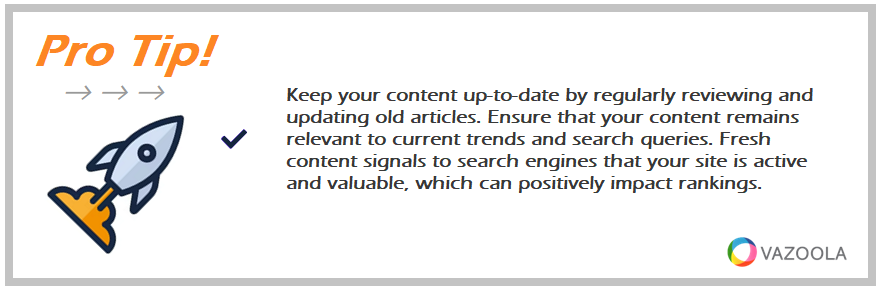
Keep your content up-to-date by regularly reviewing and updating old articles. Ensure that your content remains relevant to current trends and search queries. Fresh content signals to search engines that your site is active and valuable, which can positively impact rankings.
Generates Leads
SEO is useful for lead generation because it attracts users who are already actively searching for your specific products or services.
By targeting related keywords and phrases, SEO helps you draw in not only a targeted audience, but one with a high intent to purchase or engage.
When you optimize your website’s design and content in a way that enhances user experience and provides value, SEO helps convert visitors into leads.
The strategy is particularly effective by using tactics like well-placed calls-to-action, informative blog posts, or engaging landing pages that encourage visitors to sign up, make a purchase, or request more information.
SEO for Business Growth
Wondering how SEO can help your business?
Ultimately, the culmination of increased brand awareness, boosted traffic, and enhanced lead generation leads to overall business growth.
Effective SEO strategies help attract more visitors and improve the quality of their visits – which means more conversions and, therefore, more revenue.
Over time, as your SEO results accumulate, you'll probably see a compound effect on growth, including increased traffic and conversions that fuel further expansion.
SEO, therefore, is a highly cost-effective marketing strategy that can offer a better return on investment compared to other marketing channels.
Pro Tips:
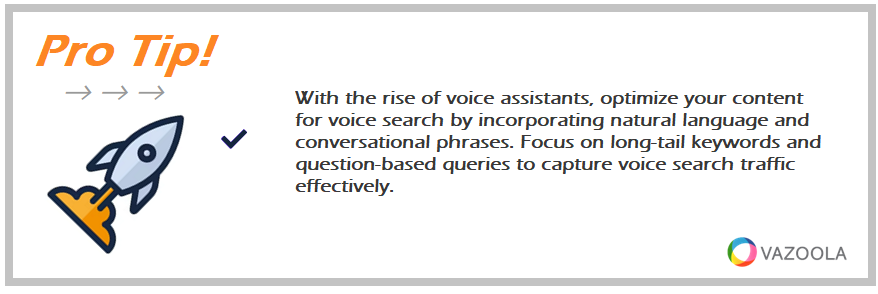
With the rise of voice assistants, optimize your content for voice search by incorporating natural language and conversational phrases. Focus on long-tail keywords and question-based queries to capture voice search traffic effectively.
So, Is Google Trying to Kill SEO?
What’s Google’s stance on search engine optimization?
It’s actually a common misconception that Google is trying to eliminate SEO.
In reality, SEO has been an important part of the digital realm for more than 25 years – and it's not going anywhere.
Instead, the powerful marketing strategy keeps evolving – largely driven by Google's ongoing updates and changes to its algorithms.
With its updates – including the latest core updates – Google’s primary goal is improving the searcher's experience. The search giant strives to ensure users receive the most relevant, high-quality content that accurately responds to their inquiries.
Google’s commitment to user experience can be seen through updates that prioritize website speed, mobile-friendliness, content quality, and user engagement metrics—all factors that enhance UX.
Far from killing SEO, Google’s updates are designed to refine and define its parameters.
So, if you’re still asking, “Do I need SEO?” the answer is a resounding, “Yes!”
Here at Vazoola, we think Google's continuous updates act as the SEO gold standard. The changes compel businesses and SEO professionals to adopt best practices that align with Google’s focus on user experience.
Pro Tips:
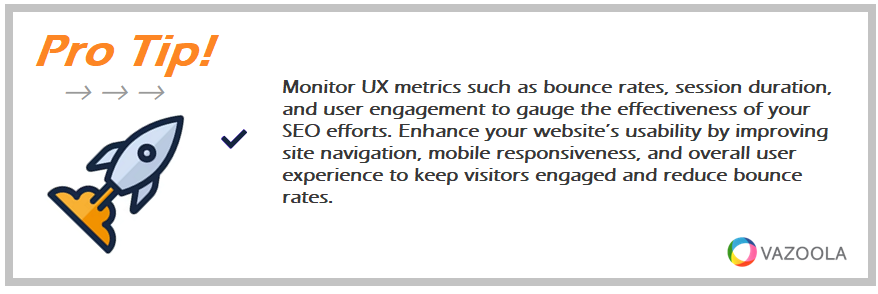
Monitor UX metrics such as bounce rates, session duration, and user engagement to gauge the effectiveness of your SEO efforts. Enhance your website’s usability by improving site navigation, mobile responsiveness, and overall user experience to keep visitors engaged and reduce bounce rates.
For example, the recent emphasis on expertise, authoritativeness, and trustworthiness (E-A-T) has shifted focus towards content quality and credibility. The change pushes websites to improve their content strategies and offer genuine value to users.
SEO’s dynamic nature is what makes the strategy so effective and resilient. As search engines evolve, so do SEO strategies. The symbiotic growth promises SEO will remain at the forefront of digital marketing tactics, continuously adapting to meet both user needs and business goals.
So, is SEO dead? Not a chance!
SEO isn’t just surviving. It’s actually thriving, driven by its ability to adapt to the changing landscape set by search engines like Google.
As long as there are search engines, there will be SEO. It’s an indispensable part of how modern businesses reach consumers, understand their audiences, and improve their online presence.
Rather than diminishing the relevance of SEO, Google's updates reinforce its importance, ensuring it remains a critical strategy for digital success well into the future.
Pro Tips:
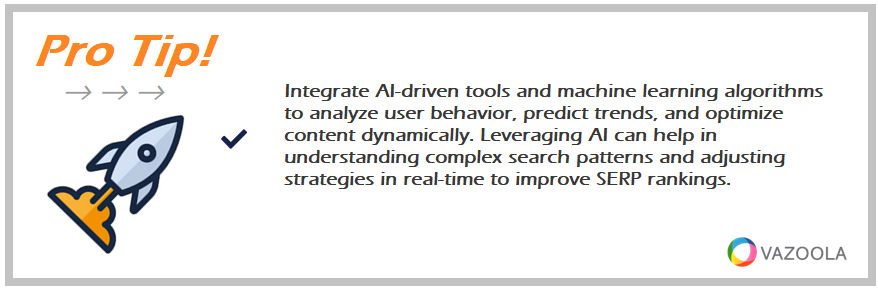
Integrate AI-driven tools and machine learning algorithms to analyze user behavior, predict trends, and optimize content dynamically. Leveraging AI can help in understanding complex search patterns and adjusting strategies in real-time to improve SERP rankings.

